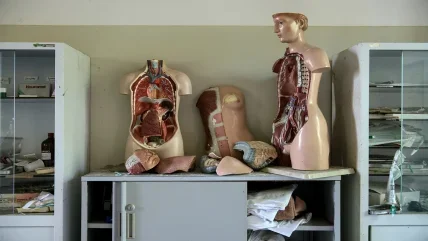
Everest Medicines has announced that Hong Kong’s Department of Health has accepted its new drug application (NDA) for the use of velsipity (etrasimod) in the treatment of ulcerative colitis (UC).
This once-daily oral treatment targets moderate to severe cases of active UC in adults.
Velsipity, the third commercialised product of Everest Medicines, is already approved in the US, European Union (EU), and other regions through its licensing partner, Pfizer.
In the Macau Special Administrative Region, China, the Pharmaceutical Administration Bureau approved the NDA in April. Velsipity was launched in the Guangdong-Hong Kong-Macau Greater Bay Area in October this year.
Velsipity was developed by Arena Pharmaceuticals, which was acquired by Pfizer in 2022. Everest Medicines secured rights to develop, produce, and commercialise the drug in Greater China and South Korea from Arena Pharmaceuticals in 2017.
Everest Medicines CEO Rogers Yongqing Luo said: “Previously, velsipity has already been approved in Macau, China, and was implemented in the Greater Bay Area through the connect policy.
“The company also plans to submit the NDA for approval by China’s National Medical Products Administration (NMPA) this year, with the aim of benefiting more Chinese patients as soon as possible.”
The NDA acceptance in Hong Kong was based on results from the ELEVATE UC Phase 3 programme, which included ELEVATE UC 52 and ELEVATE UC 12.
These studies evaluated the safety and efficacy of once-daily 2 mg etrasimod for clinical remission in UC patients with moderately to severely active UC. The patients had previously failed or were intolerant to at least one conventional, biologic, or Janus kinase (JAK) inhibitor therapy.
Both studies met all primary and key secondary efficacy endpoints, demonstrating a favourable safety profile consistent with previous etrasimod studies.
In addition, Everest Medicines conducted a multicentre, randomised, double-blind, placebo-controlled Phase 3 trial of etrasimod in Asia, including mainland China, Taiwan, and South Korea.
The induction period results showed a 25% clinical remission rate in patients treated with etrasimod 2 mg, compared to 5.4% in the placebo group.
Etrasimod also demonstrated significant improvements in all key secondary endpoints. The topline results from the maintenance period, released in July, confirmed clinical and statistical improvements over placebo after 40 weeks of treatment.
The safety profile of velsipity remained consistent with previous studies, with no new safety concerns.






